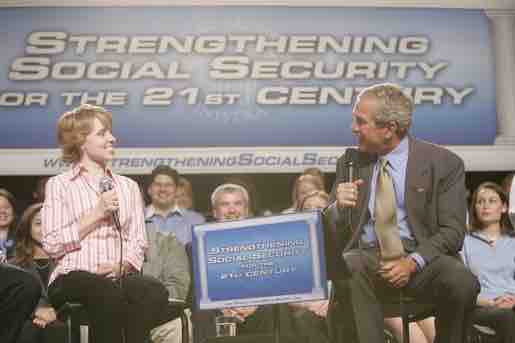The Process of Adoption
Formulated policies have to be adopted by relevant institutions of government in order to be put into effect. Adoption can be affected by the same factors that influence what issues move into the earlier phase of agenda building. For instance, policies thataddress the changed circumstances crises often bring can often be immediately adopted. Meanwhile, powerful interest groups can use their political influence to determine what policies are adopted.
The media can also play a key role in policy adoption. When reporting and commentary is unbiased it can provide a forum where debate over various cases for policy adoption takes place. When the media displays a favorable bias, it can enhance a policy proposal's likelihood of adoption. On the other hand, an unfavorable media bias may undermine a policy proposal. For example, unfavorable media coverage undermined the George W. Bush administration's proposals to change Social Security. Negative response also killed the Clinton administration's health care proposal.

George W. Bush Social Security Discussion
Negative media attention toward George W. Bush's plan for Social Security prevented policy adoption.
Governors or mayors can adopt policies to bring about change on a state or local level. However, the president has the sole responsibility of determining what policies are adopted on a nationwide level. Congress has some influence over policy adoption, as it must approve the president's actions. Once the relevant government bodies adopt policies, they move into the next phase of the policy process, policy implementation.